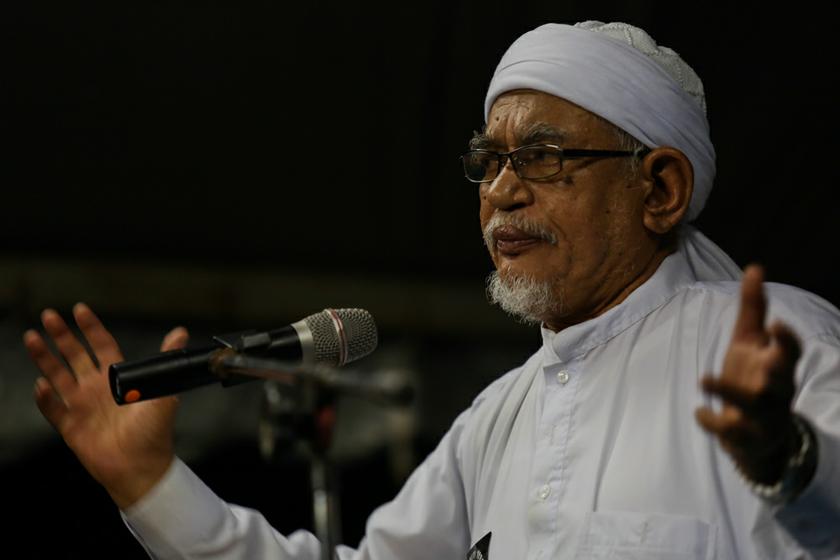SHAH ALAM, Oct 12 — Datuk Seri Abdul Hadi Awang repeated today PAS’s old push for the implementation of Islamic laws in Malaysia, a remark likely to please the party’s conservatives - the faction that is expected to return to the fore when internal polls are held this November.
The embattled PAS president insisted that the push had always been a part of the Islamist party’s agenda, and has “not been a problem” among its Pakatan Rakyat (PR) allies, including the non-Muslims.
“We’ve been having dialogues about this issue since the 90s with them.
“We want them to see how it’s implemented first because Syariah laws should not be judged just by the punishments, you have read into the court process,” he told reporters after launching the seminar on implementing Syariah laws in Malaysia at the University of Selangor.
“It is difficult to punish with the laws [as there are many factors to consider] but it is there to scare criminals,” he said.
The Marang MP claimed that the critics of Syariah laws have only highlighted the Hudud laws, when it is only one of the three type of Islamic laws.
Hudud and the Islamic state issue, along with other sensitive religious issues like the “Allah” controversy had created a schism in the Islamist party ahead of the May 5 general election, with the conservative ulama and progressive factions at loggerheads with one another.
The issue was exploited by rivals Umno to cast doubt over PAS’s commitment to Islam ahead of the May 5 general election that saw the opposition party pick up just 21 federal seats or seven fewer than Election 2008.
Among PAS casualties in the 13th general election were several of its progressive leaders, including deputy president Mohamad Sabu, who lost the Pendang race in his home state of Kedah, and vice-president Salahuddin Ayub who was defeated in Pengerang, Johor.
Party sources have said the losses in Election 2013 may propel the ulama back into the limelight, following their rout in the previous party polls, a development they said could jeopardise the PAS continued relations with its allies in PR.
Just last month, members of the PAS ulama faction even suggested that PAS rethink its membership in the multiracial, multireligious PR pact, ostensibly to protect the party’s interest and mitigate an unnamed harm, as part of eight resolutions passed at a convention held in Kedah, during which it also sought for the party’s two top posts to be reserved for the ulama.
At the meeting dubbed Multaqa Ulama Se-Malaysia (Convention of Malaysia’s Ulama), they further demanded that the members of the group be given government posts in PR-run states in an unprecedented move that suggests discontent over the lack of recognition accorded to a class that forms a powerful bloc in PAS.
Today, Abdul Hadi said Islamic laws have limited powers in the country as the religious issues are under the states’ jurisdiction.
“The states could not implement Syariah laws as they are not included under the federal laws.
“So this means Islam does not have power at the state level.
“Since PAS was voted into parliament in 1959, the country’s second election, we urged that Syariah laws be implemented nationwide, unfortunately, those who are against it, they did because they don’t understand, they thought it is a weakness, to implement the Islamic laws,” he said during his speech.
Abdul Hadi also claimed that critics only highlight the punishments without considering other branches of the punishment under Islamic laws.
“Without realising that from the crime aspect, as part of Islamic laws, and the laws are divided into three sections, qisas, hudud and takzir.”
He explained that qisas involves human rights laws where the right of forgiveness is given to the victim or the family.
This section of the law involves any murder or assault cases.
Meanwhile, hudud involves the general rights to preserve religion, dignity, descendants and property.
Among the offences under Hudud laws are apostasy, stealing, robbing, adultery, wrongly accusing others of adultery and drinking alcohol.
“The judge for the Syariah court has to find way to free the criminal, not to punish no matter what.
“In Islam, you have to find a way to free them, because to free them is better than wrongly sentence someone,” he said, in his renewed push for the controversial laws.



















